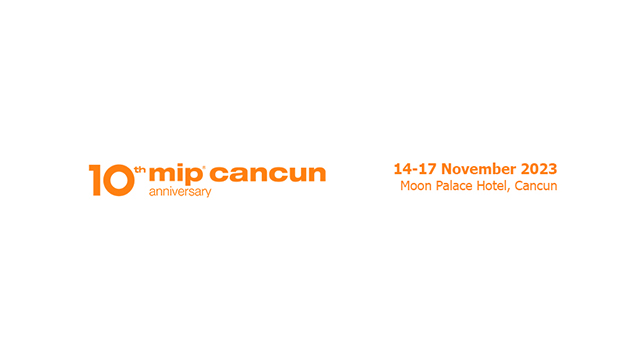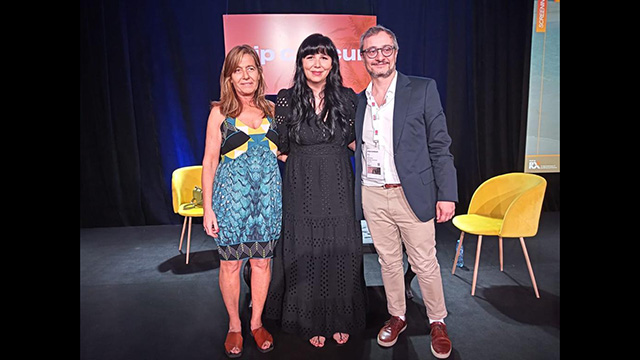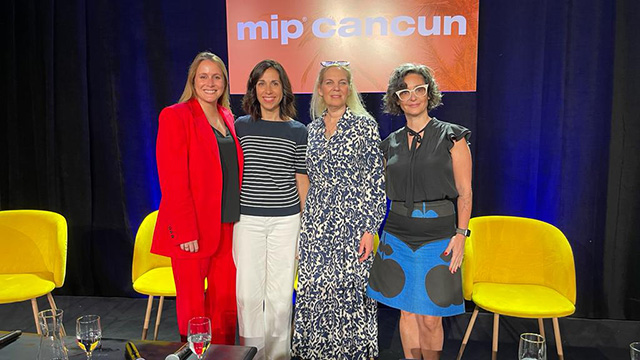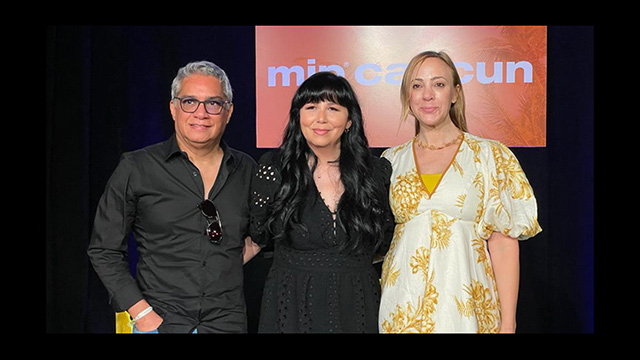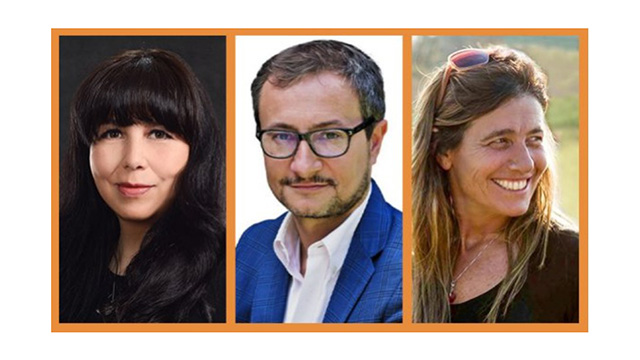Raul Berdonés, the president of Grupo Secuoya, and Epigmenio Ibarra, the CEO of Argos Comunicación, talked about attracting high-end talent in a MIP Cancun panel moderated by TV Latina’s Elizabeth Bowen-Tombari.
Berdonés explained that in order to attract talent, stories must be of high quality. “There is so much work to do in the market that they will only be attracted to appealing content and a good working environment. It’s not only the money, there has to be something unique.”
With the high volume of productions the company is planning for the future, Berdonés stated that soon there won’t be enough talent to draw from, in front of and behind the camera. “One of our initiatives at Secuoya is establishing a university geared toward preparing talent for fiction production. It will have a capacity of up to 2,000 students.”
“In Mexico, there were only four series produced a year—now it’s 45,” said Ibarra. “We’re facing issues with equipment, cameras, infrastructure and locations, but above all with talent behind and in front of the camera. We started an acting school 16 years ago with 25 students. Today there are 750. But we don’t have exclusivity; they work in the whole industry and it doesn’t provide the sufficient amount of actors.”
Bowen-Tombari then asked the panelists about working with Netflix on Ingobernable and the upcoming Yankee.
“We have a big deal in place with Netflix that goes beyond just one series,” Ibarra said. “It’s a lot of hours. And you have to learn to speak in English, Hollywoodian and Netflixian. Netflixian is a very particular language because it’s a mix of the entertainment industry with the world of technology. It’s also a company that has a very profound and radical sense of innovation and quality.”
Ibarra commented that it is necessary to change the narrative from plot-driven stories customary in Latin American content to character-driven stories. This would allow the shows to “compete on the global stage.”
In regards to working with Netflix on its first European production hub, in Spain, Berdonés highlighted the importance of Spanish content on free TV, referencing Money Heist from Álex Pina, which started on Spanish terrestrial before becoming a global Netflix original. As well as becoming the most-viewed non-English series on Netflix, “it garnered success as the most-viewed dubbed series in English in Australia, France and Brazil.”
On Argos Comunicación’s production activities, Ibarra mentioned: “Our company started out in a very limited media landscape. When we started out, there was only one television channel, then another one launched in Mexico and the production and distribution business was in the hands of the big companies. The initial strategy was to come up with an alternative for independent production.”
He explained that the company’s activities are based on three fundamental principles: “Being independent is one. You need to be able to produce reasonably successful content, not the huge success, but consistent content and remaining relevant is also important. Two, you have to deal with the devil, but without losing your essence. And three, having the resources to tell the stories you want to tell.”
Berdonés mentioned that Secuoya was established during a complicated financial time in Spain. “The company came about at a time when we had to reinvent television. There were only the free-TV channels, in which the investment fell from 3.2 billion euros to 1.6 billion between 2008 and 2012. There had to be a change in the way production was being [done] in Spain.”
The conversation then shifted to the work Argos and Secuoya are doing with big media companies like Viacom and Telemundo.
“Our principle is that we need to give audiences not what they like, but what they deserve,” said Ibarra. “With new technologies, people are just a click away from accessing productions from around the world. We’re no longer just competing with your local channel, but with France, Germany and Spain. Our focus is to serve our client, partner and friend Telemundo, for which we’ve been producing 250 to 300 hours of content for the past seven years. On the other hand, there’s also Viacom and Netflix. We’re very focused on production, but the idea is to open up even more in the industry.”
The conversation concluded with Bowen-Tombari asking the panelists what they look for in potential co-production partners in a very competitive media landscape.
“Commitment, audacity and a sense of ownership,” said Ibarra. “We produce a lot of hours, but we don’t want a volume of employees. There has to be something unique in each project and we look for people who are original and are committed, who have passion that produces something unique.”
Berdonés agreed in that there has to be passion. “This is fundamental for success. I motivate the industry to expand and grow.”
 TVLATINA
TVLATINA
